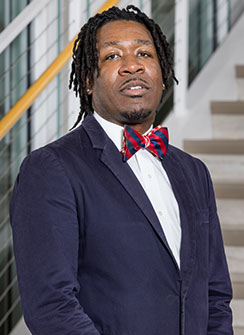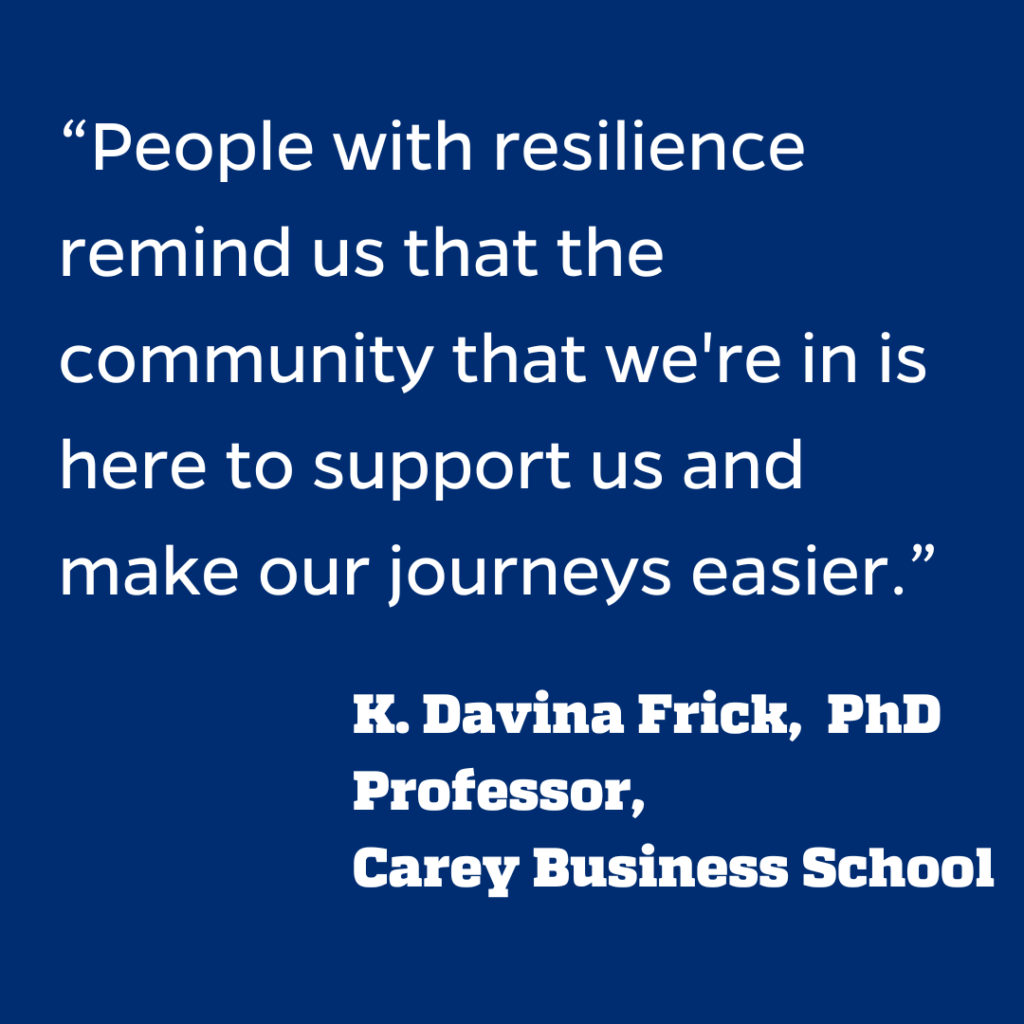Johns Hopkins UniversityEst. 1876
America’s First Research University
Davina Frick is a connector.
The professor of health economics has been on faculty at Johns Hopkins since 1996, first in the Bloomberg School of Public Health and later, in 2013, at the Carey Business School as vice dean. Along the way, Frick has built connections across Hopkins, participating in cross-divisional work and interacting with the leadership of several identity-based student groups, including Carey’s Women in Business and Pride Business Association.

Her latest connection is to the Johns Hopkins School of Nursing (SON). Already a White Coat Sponsor for the school, Frick is building even more bridges — this time to the patients the future nurses will serve — through a three-year gift supporting the school’s diversity, equity, identity, and belonging (DEIB) programming.
“I see nurses in their job within health care as the connectors in the system,” Frick says. “They have to manage in so many different directions. I respect that, and I feel it has a very strong analogy to the way my career has worked as being a connector, a facilitator, and a builder.”
Philanthropic support, like the partnership with Frick, is crucial to the work Associate Dean of DEIB Jermaine Monk’s office does at the School of Nursing. His team is helping to create a more inclusive environment within the school through both culture and curriculum development.
“I think that philanthropy is so important not just to the institution, but to the work of smaller departments like mine,” Monk says. “It helps further the mission.”
The first event funded by Frick’s gift, held earlier this year, explored engaging patients who are part of the LGBTIQA+ community. The school screened a film, “You Belong Here,” created by the East Carolina University Health Systems, followed by a panel discussion that included Frick and the film’s producers.
The film’s rural setting in North Carolina was particularly important, Monk says. Because many nurses train in larger cities and suburbs, practice in rural areas with smaller populations can be forgotten. There are often other dynamics to navigate, he explains, including the influence of religion and more limited access to health care.
“For many of us, it was an aha moment,” he says. “Are we doing enough to train our students to work in some of these smaller, rural communities where resources may not be as plentiful, but also the views may not be as inclusive of the very people with whom we are working?”
Hearing directly from a few of the people featured in the film, especially those who identify with the LGBTIQA+, was also impactful for Hopkins nursing students and faculty.

“How do we engage with a patient who is part of that community in a way that is respectful and dignified?” Monk asks. “How do we best prepare our students in order to be able to engage folks at different levels?”
The conversation also provided insight on things families, employers, and communities can do to support members of the LGBTIQA+ community, regardless of geographic location. For health care providers specifically, more formalized training can help them be ready to interact with a group that is often marginalized and create a safe space that may not otherwise exist in the broader community.
“There are ways to make a difference in how we feel about ourselves,” Frick says.
She adds that, while many of those featured in the film came out at a much younger age, she did so in her mid-50s. Some elements of deciding to change her preferred name and pronouns were more difficult, Frick says. Yet she also experienced coming out as an established academic in a more progressive, urban area.
“The ability to do that with nobody batting an eyelash or worrying about whether I was not going to get promoted as a result is a privilege,” she says. “It was interesting to compare with others’ experiences. There is general human experience of being someone who is seen as other, and there are different ways people can make you feel welcome.”
She adds that, for her, bringing students, faculty, and external speakers together was the most impactful part of the event.
“In talking with people at the event, there was an element of struggle here and there, but the stories were mostly positive,” she says. “People with resilience remind us that the community that we’re in is here to support us and make our journeys easier.”
Topics: Faculty and Staff, Carey Business School, School of Nursing, Support Scholars